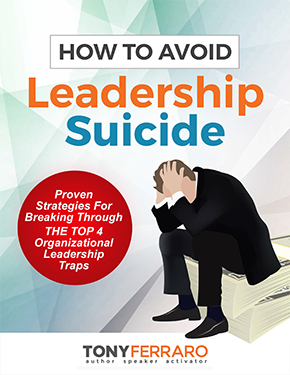I work with many leaders who reveal a lack of self-confidence. The reasons are all different; but, the manifestation is the same every time: “I just don’t feel confident to (blank).” Regardless of the history behind the lack of confidence, the leader always ends up in the same place—with a debilitating belief that keeps them from stepping fully into who God has called them to be.
Here are 4 simple steps for overcoming a lack of self-confidence:
Step 1: Understand the difference between a lack of self-confidence and a lack of self-assurance.
Having “Self-Confidence” means to stand in or with truth, i.e. “Con-Fidence” literally translates to mean “with truth.” It is impossible for us to not be self-confident unless we are lying to ourselves or living a lie. Conversely, self-assurance measures the degree to which we are comfortable in our own skin. If we understand that self-confidence is about standing in truth and not about comfort, it becomes a lot easier to tackle and will result in gaining comfort in our skin.
Step 2: Define truth. If self-confidence is to stand in or with truth, then what is “truth?” Our truth is found in 3 components.
- Our Truth: Jesus said, “I am the truth.” If you are aligned with Jesus, you are standing with truth.
- Our Design: Knowing and understanding who God has designed you to be. If God designed you for a purpose and you are living in that purpose, then you are living in truth.
- Our History: Have your experiences prepared you for what you are about to do? If you are living in your design and you have a collective set of experiences that prepare you for that purpose, it will be proven by your track record.
So often we get stuck feeling like we have to prove to others what we already know to be true about ourselves. If it is true, there is no proof necessary. It is simply a matter of exposing others to our success. Feeling as though we need to prove something immediately puts us on the defensive. Whereas, feeling as though we need to tell the world who we are puts us in a vision driven role that is much more exciting to others.
If we know that Jesus is with us, that He designed us for a purpose, and we are living out that purpose and have a track record of proven success, then we can gain assurance knowing that we know what is true about ourselves.
Step 3: Repeat after me: “It’s not about me.” If God designed us with a purpose, that purpose is to impact His Kingdom, not our empire.
When we live within God’s intended design for our lives and we provide an opportunity for others to engage us in that design, if they decide against it, they are not rejecting you but are rejecting the application of God working through you in that capacity. They may have very good reasons for doing so; or, they may have bad reasons; but, in either case, it is not about you.
Step 4: Rely on Truth. God does not want us to act alone. He designed us intentionally to need His spirit to move through us as we do His work.
So, accomplishing big God things with our lives requires the involvement of a Big God in our life. In other words, He designed you to need His participation. To have assurance without Him is foolish. To lack assurance with Him is equally foolish. In either case, when we walk with God in our design, we can set our emotions aside knowing that God is with us regardless of the outcome.
Error: Contact form not found.


